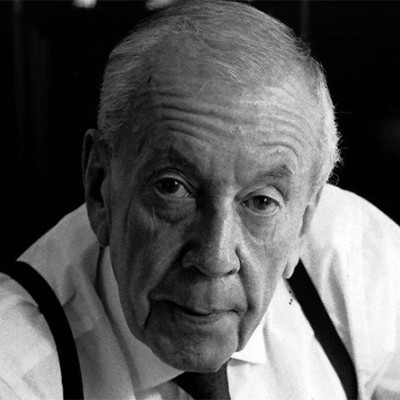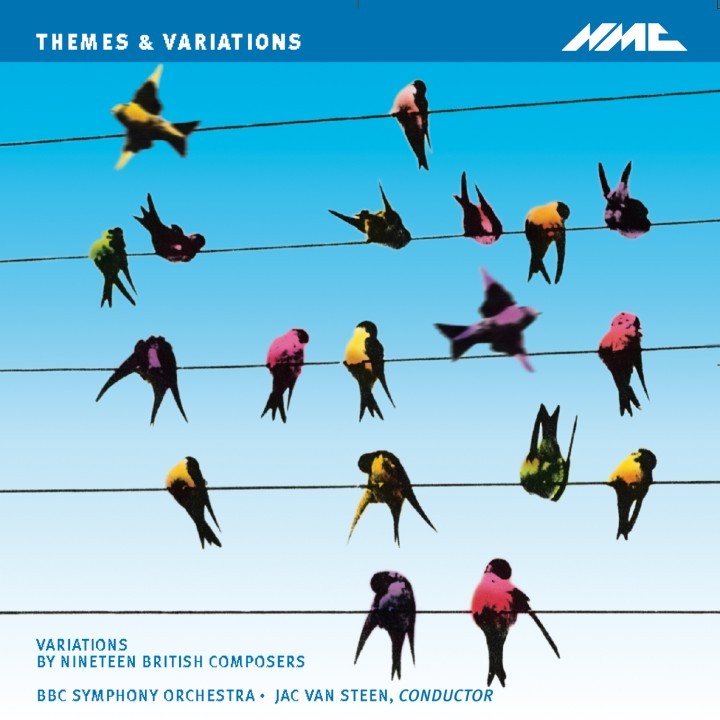Malcolm Arnold
Sir Malcolm Arnold CBE was born in Northampton in 1921; his early musical influences came from his mother, a fine amateur pianist and, later, from writing and improvising jazz with his brother and friends.
An admirer of Louis Armstrong’s trumpet playing, Arnold took up the trumpet at the age of twelve and won a scholarship to the Royal College of Music at sixteen, studying trumpet with Ernest Hall and composition with Gordon Jacob, but leaving during his second year on an invitation to join the London Philharmonic Orchestra. Promotion to principal soon followed, and Arnold swiftly became acknowledged as one of the great trumpeters of the age. During his time with the LPO he composed prolifically, until he won the Mendelssohn Scholarship in 1948 and abandoned professional playing for good in favour of composition.
Until the early sixties, Arnold composed at a tremendous rate; the Third, Fourth and Fifth Symphonies were commissioned and composed during this time, and Arnold wrote concertos and sonatas for players he particularly admired, including the Guitar Concerto for Julian Bream. Arnold's role as a conductor of his works, both in the concert hall and in the studio for films and recordings, increased at this time and he was composing film scores at the rate of six per year. This hectic pace of life, however, could not be sustained for long and the early sixties saw a period of depression for Arnold and the breakdown of his marriage. In the mid-sixties, he moved to Cornwall where he settled until 1972 with his second wife, becoming closely involved in Cornish musical life; he was made a Bard of the Cornish Gorsedd in 1968 and was awarded the CBE two years later.
In 1972 Arnold moved with his family to Dublin, where he wrote the Seventh Symphony, Clarinet Concerto No 2 and the Fantasy on a Theme of John Field. In 1977 Arnold returned to England after the break-up of his second marriage. During the next seven years he spent two short periods in hospital and only completed three works: the Symphony for Brass, the Trumpet Concerto and the Eighth Symphony.
A return to health marked his move to Norfolk in 1984, where he returned to writing, producing a Recorder Concerto for Michaela Petri, the Irish Dances and the Ninth Symphony, as well as a Fantasy for Cello and Cello Concerto for Julian Lloyd-Webber; recognition and awards followed: in 1986 the Ivor Novello Award for Outstanding Services to British Music, in 1989 a Doctorate of Music from Miami University, Oxford Ohio, and a Knighthood in 1993. He died in 2006.
Sir Malcolm Arnold CBE was born in Northampton in 1921; his early musical influences came from his mother, a fine amateur pianist and, later, from writing and improvising jazz with his brother and friends.
An admirer of Louis Armstrong’s trumpet playing, Arnold took up the trumpet at the age of twelve and won a scholarship to the Royal College of Music at sixteen, studying trumpet with Ernest Hall and composition with Gordon Jacob, but leaving during his second year on an invitation to join the London Philharmonic Orchestra. Promotion to principal soon followed, and Arnold swiftly became acknowledged as one of the great trumpeters of the age. During his time with the LPO he composed prolifically, until he won the Mendelssohn Scholarship in 1948 and abandoned professional playing for good in favour of composition.
Until the early sixties, Arnold composed at a tremendous rate; the Third, Fourth and Fifth Symphonies were commissioned and composed during this time, and Arnold wrote concertos and sonatas for players he particularly admired, including the Guitar Concerto for Julian Bream. Arnold's role as a conductor of his works, both in the concert hall and in the studio for films and recordings, increased at this time and he was composing film scores at the rate of six per year. This hectic pace of life, however, could not be sustained for long and the early sixties saw a period of depression for Arnold and the breakdown of his marriage. In the mid-sixties, he moved to Cornwall where he settled until 1972 with his second wife, becoming closely involved in Cornish musical life; he was made a Bard of the Cornish Gorsedd in 1968 and was awarded the CBE two years later.
In 1972 Arnold moved with his family to Dublin, where he wrote the Seventh Symphony, Clarinet Concerto No 2 and the Fantasy on a Theme of John Field. In 1977 Arnold returned to England after the break-up of his second marriage. During the next seven years he spent two short periods in hospital and only completed three works: the Symphony for Brass, the Trumpet Concerto and the Eighth Symphony.
A return to health marked his move to Norfolk in 1984, where he returned to writing, producing a Recorder Concerto for Michaela Petri, the Irish Dances and the Ninth Symphony, as well as a Fantasy for Cello and Cello Concerto for Julian Lloyd-Webber; recognition and awards followed: in 1986 the Ivor Novello Award for Outstanding Services to British Music, in 1989 a Doctorate of Music from Miami University, Oxford Ohio, and a Knighthood in 1993. He died in 2006.
Compilations with this composer
CompilationsRelated composers
Related composersExternal Links
Music Map
Discover more about the classical music of today with NMC's Music Map, and exciting and educational online tool which enables you to see and hear the connections between composers, their teachers, pupils, influences and their works.
Music Map

